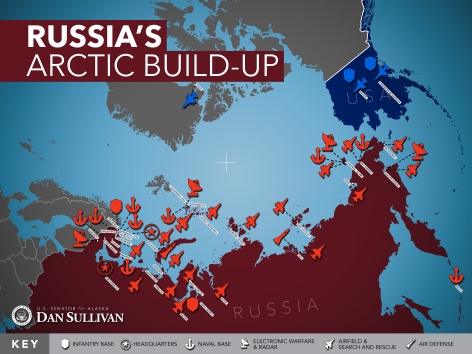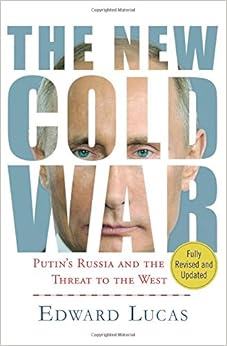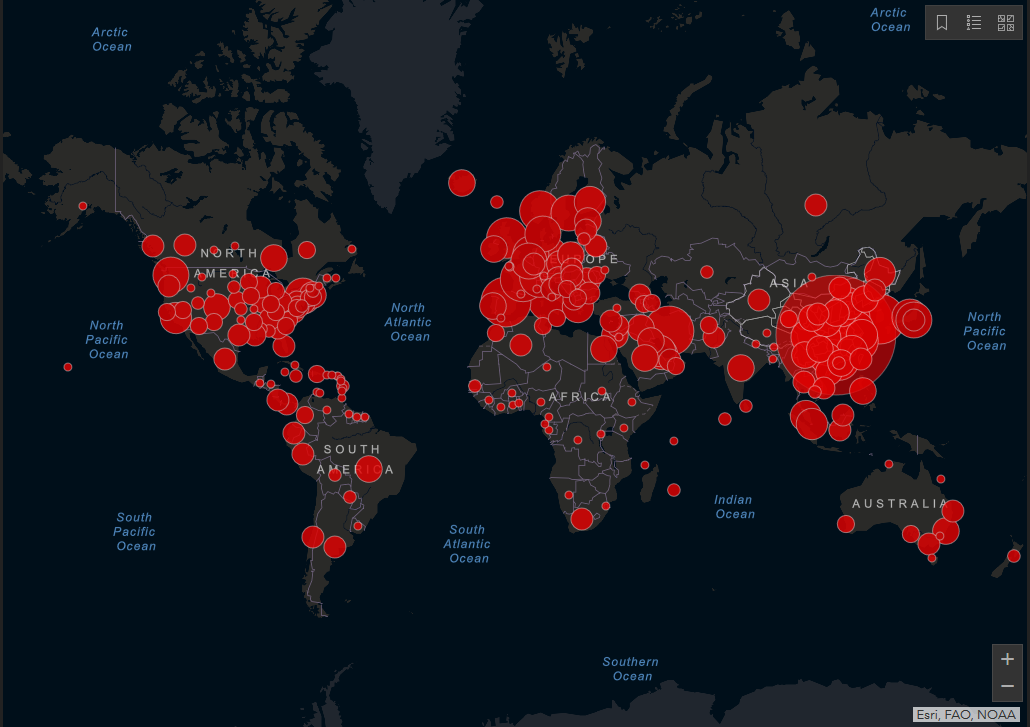> Checkmate. Cuban Missile Crisis Redux. The Soyuz launch site (picture of model at left) at the Guiana Space Center, originally built by the French Space Agency, is to be completed in 2008, according to the RussianSpaceWeb.com article below. However, according to the first Moscow News article, also below, “commercial” space launches will begin in 2006.
Checkmate. Cuban Missile Crisis Redux. The Soyuz launch site (picture of model at left) at the Guiana Space Center, originally built by the French Space Agency, is to be completed in 2008, according to the RussianSpaceWeb.com article below. However, according to the first Moscow News article, also below, “commercial” space launches will begin in 2006.
Very clever. Should US warheads reduce the space center at Plesetsk to radioactive dust, the Soviets will have a potential strategic military asset on French territory in the Western Hemisphere.
Meanwhile, the communist government of Brazil must be swelling with red pride as one of its countrymen will be propelled into space in March 2006.
Guiana Space Center
Laws of orbital mechanics push rocket designers to seek prospective launch sites as close to the Equator as possible. The space vehicle launched due East anywhere on the Equator can use Earth rotation to its full advantage, maximizing the payload and minimizing the cost. Such unique requirement made a jungle-covered South American coast of French Guiana an ideal choice for future European space hub.
An exotic ocean-side coastline, near a sleepy town of Kourou, located just five degrees north of the Equator, would provide a starting point for a safe flight corridor over the Atlantic Ocean and give the rocket extra 460 meters per second in velocity from the natural Earth rotation. Ironically, before the coming of the spaceport, the area was mostly known in France for a notorious penal colony located on the nearby Devil’s Island.
The decision to build the launch site in Kourou was made by France in 1964 and the initial construction at a cost of 25 million Francs was completed in 1968. Kourou provided France with the alternative to the Hammaguir rocket test base in Algeria, evacuated by June 30, 1967, in the aftermath of the Algerian war for independence.
Location
The original rocket launching facilities in French Guiana were built by French Space Agency, CNES, along a stretch of coastal land some 60 kilometers wide from the town of Kourou to the town of Sinnamari. Without climate controlled facilities, launch campaigns could be conducted only during a five-month-long dry season, while frequent floods threatened launch pads, located just five meters above the sea level.
The main launch corridor to reach near-Equatorial orbit stretched some 4,000 kilometers in Eastern direction. It was also possible to reach highly inclined polar orbit, along a corridor heading 3,000 kilometers in northern direction toward the Islands of Bermuda. Total azimuth of possible launches from Kourou reached 120 degrees.
The original flight control network included ground stations on the Montagne de Peres islands off the coast of French Guiana, as well as in Cayenne, some 60 kilometers southeast from Kourou and in Fortaleze, Brazil. Two main stations on the islands were equipped with 12-meter parabolic antennas, others with smaller antennas.
Rocket stages can be transported to the site by sea (booster stages) and by air (upper stages and payloads).
Launch history
First sounding rocket launches commenced in April 1968, followed by the Diamant launch vehicle in 1970. On March 10, 1970, the Diamant-B rocket successfully delivered the DIAL satellite into orbit, the first spacecraft launched from Kourou. Until May 21, 1973, total five Diamant-B rockets were launched from Kourou, three of them successfully. It was followed by the Diamant BP4 rocket.
From 1976, the European Space Agency, ESA, partially funded the construction and the maintenance of the site. Around the time, the annual budget of the spaceport reached around 300 million Francs, one third of which was funded by France and the rest by the European Space Agency.
The very first attempt to launch the Europa-2 rocket from Kourou in November 1971 ended in failure, after which the program was shot down. The ELA-1 launch complex was later refurbished for the Ariane program, which was officially under development from July 1973.
The first Ariane-1 rocket was launched from French Guiana on Dec. 24, 1979, eventually making Kourou the capital of the world’s commercial space activities. The Ariane-2 and -3 rockets were introduced in 1984 and a long-lasting Ariane-4 version completed its maiden flight on June 15, 1988. It remained in operation until the middle of the first decade of the 21st century.
At the beginning of the 1990s, the spaceport in Kourou occupied 850 square kilometers of land and directly employed 1,100 members of the personnel. The town and surrounding area was also booming, attracting a considerable influx of immigrants. The spaceport even became a destination for the Concorde supersonic passenger jet, which carried government officials, engineers and journalists attending major launches.
Soyuz in Kourou
Early on, the French government made an official decision to make the site available to any country willing to deploy its space launcher systems there. At the time, few could predict that Russian rockets would become first “foreign guests” in Kourou.
After several years of consideration, Europe committed to fund the construction of a launch pad for the Soyuz-2 family of rockets in Kourou. On November 7, 2003, Russian and French governments formally agreed to bring Soyuz to Kourou.
With the signing of a formal agreement between Arianespace and Russian Space Agency on April 11, 2005, the countdown for the construction of the launch pad officially started on April 26, 2005. According to the contract, the Moscow-based KBOM design bureau had to be ready for the “all out” tests of the launch pad with the Soyuz-2 (Soyuz-ST) rocket within 35 months from the beginning of the construction. The tests were expected to last for two months, culminating with the actual launch of the first mission sometime in 2008, or 37 months after the beginning of the construction. The excavation for the pad was expected to start at the end of the monsoon season of 2005. As many as 50 Soyuz launches were expected from Kourou over a 15-year period.
Technical description
The launch complex for the Soyuz rockets in Kourou featured considerable differences from its original launch pads in Baikonur and Plesetsk. Since the potential commercial payloads only allowed vertical integration with the rocket, the launch complex designers have decided to install payload module onto the rocket after it is rolled out and erected into vertical position on the launch pad. To provide a climate controlled environment for the integration of the payload with the launch vehicle, a movable service tower was introduced. The design of the tower would enable its further extension in the future, including accommodations for the crew access into the manned spacecraft.
In designing the complex, the developers also left the option for future addition of the liquid hydrogen fuel storage, which would enable launches of the rockets powered by cryogenic engines.
The upgrade for the manned missions would be also possible, however it would require taking the launch pad out of service for a certain period of time.
Soyuz-ST payload capabilities from Kourou:
Geo-transfer orbit, GTO: up to 2,720 kilograms
Geostationary orbit, GSO: up to 1,360 kilograms
Sun-synchronous orbit, SSO: up to 4,350 kilograms
Link: RussianSpaceWeb.com
Russia Launches New Generation Space Rocket
Created: 09.11.2004 11:12 MSK (GMT +3), Updated: 11:12 MSK
MosNews
Russia launched a new generation booster rocket Monday after two postponements, paving the way for new space programs and even commercial space launches.
The Soyuz-2 rocket blasted off from the Plesetsk launch pad in northern Russia carrying a mock-up of an unspecified “space apparatus,” the Interfax news agency reported.
Originally scheduled for Oct. 29, the launch was put off twice in order to correct software flaws and perform tests.
The booster is a modernized, high-powered version of the Soyuz rocket, equipped with an updated digital control system, and requiring fewer people to oversee its launch, Interfax reports.
In addition to using the Soyuz-2 for its own manned and unmanned space program, Russia plans to use the booster for commercial space launches from the Kourou launch pad in French Guiana, starting in 2006, under a deal reached with the European Space Agency.
Link: Moscow News
 Russian Experts Pleased With Brazilian Progress Ahead of First Space Flight
Russian Experts Pleased With Brazilian Progress Ahead of First Space Flight
Created: 30.01.2006 11:34 MSK (GMT +3)
MosNews
Russian experts have largely praised the progress of Brazil’s space program after checking preparations for the maiden voyage of the South American country’s first astronaut.
“Our task was to inspect the equipment and make sure it is safe to use on board the International Space Station (ISS),” Sergei Rybkin, a department head at the Russian Space Agency was quoted by RIA Novosti as saying.
During the visit to Brazil, a team of experts from the Russian agency and the Energia Rocket and Space Corporation, Russia’s leading space-industry company, were satisfied with the testing facilities, though it proposed several design changes in the equipment that would be used for work in space.
“We made several technical suggestions, and the Brazilians have to follow them accordingly,” Rybkin said. “These are small design changes related to automatic shutdown procedures, the absence of sharp edges on the body of various devices and the need to maintain external temperatures on the surface of the equipment at +40 Celsius (about 104 Fahrenheit) or below.”
The second round of equipment testing will be conducted at the National Space Research Institute in Brazil in mid-February and after that the equipment will be delivered to Moscow for final approval.
The Russian and Brazilian presidents signed a contract in October 2005 to send Brazil’s first astronaut to the ISS on board a Russian Soyuz spacecraft in March 2006.
During the $20-million mission, Lt. Col. Marcus Pontes, who passed through NASA training in 2000, will conduct nine scientific experiments in the sphere of nano- and bio-technology and plant behavior in micro-gravitational conditions.
According to experts, Pontes, who will travel to the ISS on March 30 to spend 10 days on board the station, will have enough time to practice using the equipment during the final stages of his preparation for the space mission in Moscow.
Link: Moscow News
























































